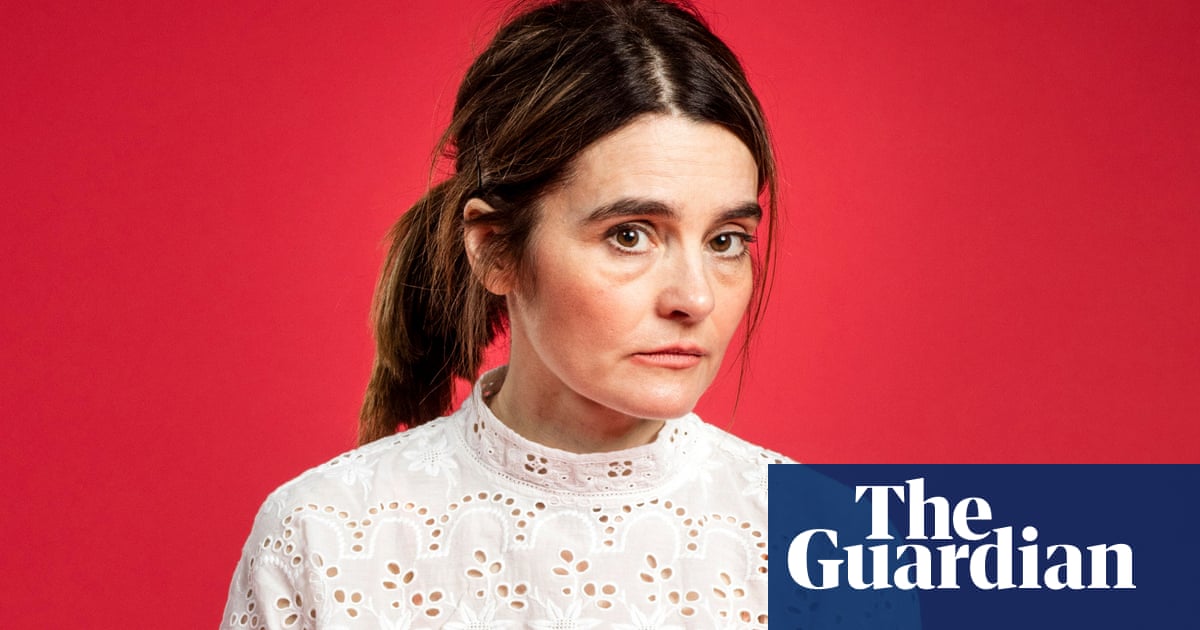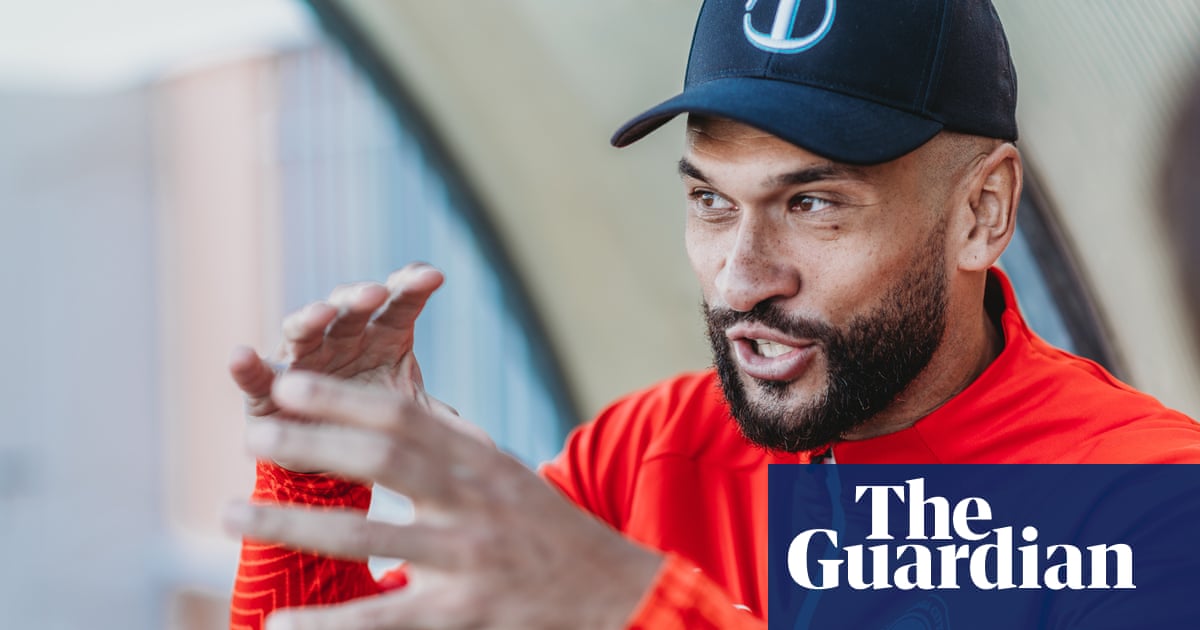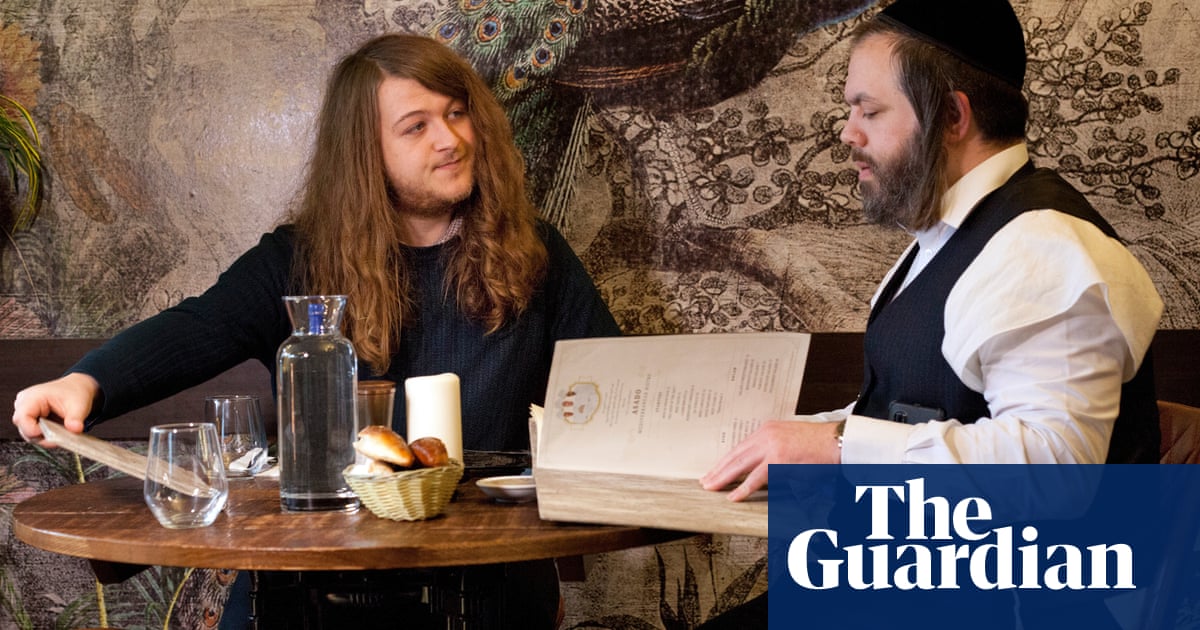
Nilüfer Yanya may have grown up in Chelsea, but hers is not the world of the Sloane Ranger 2.0: pristine Georgian townhouses and endless champagne brunches. Instead, it is the manic, deadening, claustrophobic side of the city that radiates through her work: on recent single Stabilise, the 26-year-old sings of never-ending high rises, filled with small flats “rotten to the core”. “Grey concrete,” she says. “I see that immediately when the song starts. A literal grey but also an emotional grey.”
Today we are in the first kind of London – a posh, gleaming, pink-accented coffee shop in Bayswater – discussing Yanya’s upcoming second album, Painless, a collection of prickly, occasionally jazzy, and always catchy post-punk that lands somewhere between Joy Division, King Krule and PJ Harvey. It is the sequel to 2019’s rave-reviewed Miss Universe, a record that heralded this unassuming, smiley woman as one of Britain’s most exciting new rock stars.
And yet, in spite of her uniformly excellent output, Yanya’s rise seems highly unusual. Not because it was sparked by a flukey moment of internet-fuelled hype – but because it wasn’t. Instead, it involved nothing more newfangled than gigging around London throughout her teens and early 20s, signing to an independent label and, then, more of the same. Granted, she was offered some (questionable) shortcuts along the way, such as the time she dodged involvement in a doomed manufactured girl band with links to One Direction’s Louis Tomlinson, an industry approach Yanya sums up as: “‘Let’s go and pinch some young people, tell them we’re going to make a really successful group but we’re obviously going to make a lot more money than them.’ It’s a very selfish thing to do.” Even more so considering she heard the entire project was unceremoniously ditched a year later.
In any case, being a pop star was never on Yanya’s radar. You don’t make sour, spiky, impressionistic rock songs if you want to be top of the charts, or, indeed, if you want to surf the zeitgeist: Painless doesn’t exactly correspond with the current sound of young London. Do her friends listen to guitar music? “Not massively,” she admits. It’s also not the music some people expected her to make, going by her name (her father is Turkish) and her appearance (she is mixed race). “Some people have [described it as] R&B and it’s like: where are you getting that from? There’s a very small element of that in any music I’ve released.”
It was boys with guitars that shaped her musical ambitions from the start. A talented pianist as a child, she was turned on to “pop-rock, skater-punk, and the Strokes” by her elder sister. “It was weird because I didn’t really listen to any female singers; the only music that was ‘credible’ was by guys. Obviously I never realised that, I just thought this is cool. I didn’t think ‘I feel excluded.’”
Without seeing any women doing it, how did she know she could? “I just wanted to try. I guess I wasn’t worrying about it being commercially successful; I wasn’t thinking: how am I going to make this a TikTok hit.” Not that she’s totally off the hook in that regard: she is now being encouraged by her team to promote her wares on the platform: “It’s a young person’s thing; I feel like I’m past that. Can’t I just be an adult now?!”
For Yanya, adulthood hasn’t only involved a creeping ambivalence towards social media; it has also turned her attention towards her Turkish heritage. Painless features a saz, the stringed instrument her father used to play around the house, and she has recently started taking Turkish lessons. Her younger self shared none of this enthusiasm. “When you grow up here and your parents are from other countries, you want to disassociate in some way,” she says. “You’re like: ‘No, I just want to be from London, I don’t want to have to deal with all this other stuff.’” She still feels like she’s only just starting to understand Turkish culture: “I don’t really know anything. My mum’s Irish and Bajan so there’s so much going on, I don’t really know myself most of the time.”
It doesn’t help that the music industry tends to treat her background in a reductive, flattening way. “‘You’re Turkish, great, we’ve got that covered’ or ‘You’re mixed race, cool, got that ticked.’ They’re like: ‘Well we need people who aren’t just white now, but you still look white so that’s even better.’”
One weapon against industry cynicism is to surround yourself with people who genuinely have your best interests at heart – and Yanya has managed to keep her career a family affair. At 16, she recorded her first song in her uncle’s Cornwall studio, a tradition she has continued with Painless. Her younger sister, Elif, sometimes joins her on tour as a backing singer, while her elder sister Molly directs her music videos.
With Molly, she has also set up an initiative called Artists in Transit that brings creative workshops to refugee children, initially in Greece and now in London. “You’re just talking to people, making nice things,” explains Yanya. “Their parents just want them to have a nice time no matter where they are, so we’re playing to that. I don’t know how to help people get out of that situation, [but] I think the first step is getting to know people and bridging some sort of gap.”
As the child of two visual artists, creativity has been a constant in Yanya’s life. But the arts, she notes, seem increasingly undervalued in the UK. A case in point: she attended Pimlico School, known for fostering music talent (alumni include La Roux’s Elly Jackson, Roots Manuva and Dave Okumu of the Invisible, who also taught Yanya music there). Halfway through her education, the school was converted into an academy and music teaching cut by half.
She despairs of the way creativity has become “a luxury. It shouldn’t be something for people that have extra money or extra time. Why can’t everyone take part?”. School music lessons, giving young refugees a creative outlet: the arts are not just a nice-to-have, says Yanya, they are an essential. “It’s a way of communicating, it crosses cultures. When you cut people off from being able to do that, it’s like cutting off an arm.” It’s not difficult to agree – and if anyone remains sceptical about the benefits of encouraging creativity in childhood, an encounter with Yanya’s exhilarating music is sure to change their minds.












